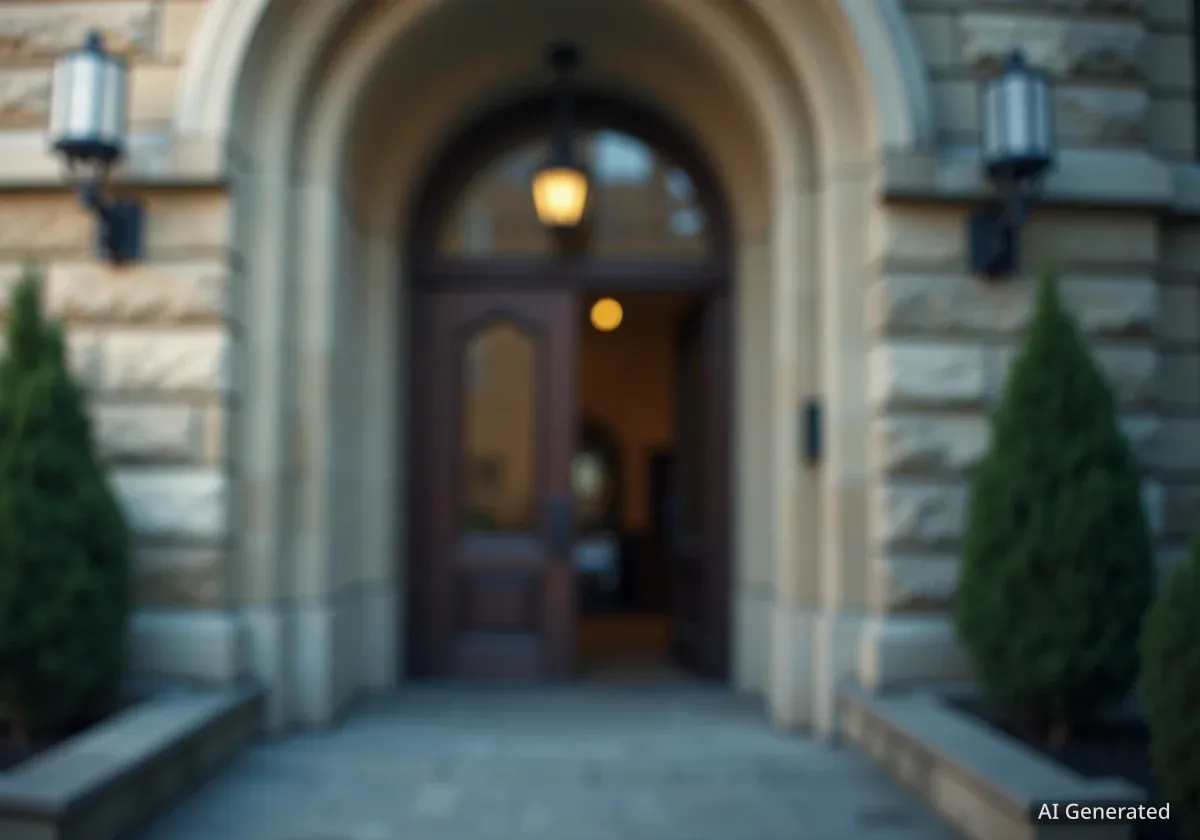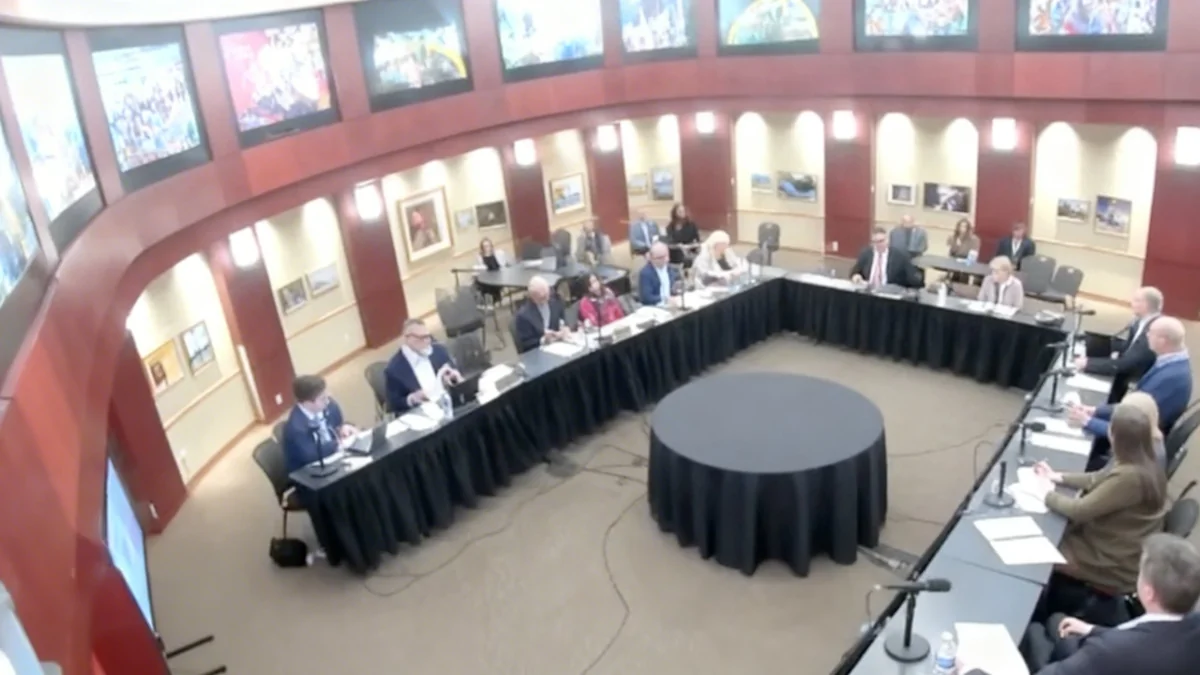A Cornell University law professor is preparing a federal civil rights complaint against the institution following the public release of personal information about an Israeli student. The student had previously filed a successful discrimination claim against a professor, and the leak of his identity has raised concerns about witness intimidation and student safety.
Key Takeaways
- Professor William Jacobson plans to file a federal complaint with the Departments of Justice and Education.
- The complaint addresses the public release of the name and military background of an Israeli student whistleblower, Oren Renard.
- Renard had previously been found to be a victim of discrimination by Cornell's Office of Civil Rights.
- The professor involved in the original discrimination case, Eric Cheyfitz, retired from the university after the finding.
- Jacobson argues the data leak constitutes harassment and intimidation, potentially violating federal laws like FERPA.
New Federal Complaint Planned
William Jacobson, a clinical professor of law at Cornell University, announced his intention to take further legal action against the school. Jacobson, who also directs the legal watchdog group the Equal Protection Project, stated he will file a civil rights complaint with the U.S. Departments of Justice and Education.
The complaint focuses on the public disclosure of identifying information about Oren Renard, an Israeli student. Renard's full name and his past service in an elite surveillance unit of the Israel Defense Forces were published by several media outlets, including the left-leaning magazine The Nation.
“The Equal Protection Project and myself intend on filing a civil rights complaint with the Departments of Justice and Education, calling for an investigation of the harassment, intimidation and doxing of a student complainant in a Cornell University disciplinary matter,” Jacobson said.
Jacobson argues that this release of information has created a chilling effect on campus. He believes it serves as a deterrent to other students, particularly those of Israeli or Jewish background, who might fear similar public exposure if they report discrimination.
What is FERPA?
The Family Educational Rights and Privacy Act (FERPA) is a federal law that protects the privacy of student education records. The law applies to all schools that receive funds under an applicable program of the U.S. Department of Education. It generally prohibits the improper disclosure of personally identifiable information from student records.
Background of the Original Discrimination Case
The situation stems from an earlier incident involving Renard and former professor Eric Cheyfitz. Renard alleged that he was excluded from Cheyfitz's course, titled “Gaza, Indigeneity, Resistance,” because of his Israeli nationality.
Following Renard's complaint, the Cornell Office of Civil Rights launched an investigation. The office concluded its review with a “finding of discrimination” against Cheyfitz. According to a university spokesperson, Cheyfitz “admitted to actions that violated federal civil rights laws and fell short of the university’s expectations for student interactions.”
Jacobson, whose organization supported Renard, described the university's initial investigation into the discrimination claim as “thorough.”
Professor Cheyfitz's Departure from Cornell
After the university's finding, Professor Cheyfitz, a well-known anti-Israel activist on campus, chose to retire. A Cornell spokesperson confirmed his departure, stating, “Professor Cheyfitz has chosen to retire and leave university employment, thus ending Cornell’s disciplinary process.”
Despite his retirement ending the disciplinary proceedings, the university emphasized that the original finding remains. “The finding that Professor Cheyfitz violated Cornell policy and federal law remains in place,” the spokesperson added.
In an interview with the Cornell Daily Sun student newspaper, Cheyfitz offered a different account. He claimed he initially welcomed Renard but later asked him to leave the class for several reasons. Cheyfitz alleged that Renard was upsetting other students, not completing readings, making contradictory comments, and potentially recording the class in violation of school rules.
Professor's Stated Reasons for Removal
- Belief that the student was surveilling and recording others.
- Claim that the student was "upsetting" classmates.
- Allegation that the student was not doing the readings or participating constructively.
Conflicting Internal University Reviews
The case involved multiple layers of review within Cornell, leading to different conclusions. After the Office of Civil Rights found that Cheyfitz had discriminated against Renard, a separate Faculty Senate committee reviewed the case and rejected that finding.
The university's provost later clarified the discrepancy. The provost explained that the two bodies used different standards of evidence. The Office of Civil Rights used the “preponderance of evidence” standard, which is required by federal law for such investigations. This standard means it is more likely than not that the discrimination occurred.
In contrast, the Faculty Senate panel used a higher standard of “clear and convincing” evidence. Following this clarification, the provost reopened the case, which remained pending until Cheyfitz announced his retirement.
Safety and Legal Implications of the Data Leak
Jacobson's planned complaint shifts the focus from the original discrimination to the subsequent public identification of the student complainant. He asserts that the leak of Renard's identity and military service record is a form of intimidation.
“There has been a campaign to dox the student, to reveal his name, even though he is in fear of his safety,” Jacobson stated. He added that the attacks “serve as a deterrent to other students who may want to come forward.”
The core of the new complaint is that the university has a responsibility to protect students who report civil rights violations from retaliation and harassment. By allowing Renard's identity to be leaked, Jacobson argues, the university may have failed in this duty and potentially violated federal privacy and civil rights laws.
The planned filing with the Departments of Justice and Education seeks a federal investigation into how Renard's private information became public and whether it constitutes a violation of his rights as a student complainant.





